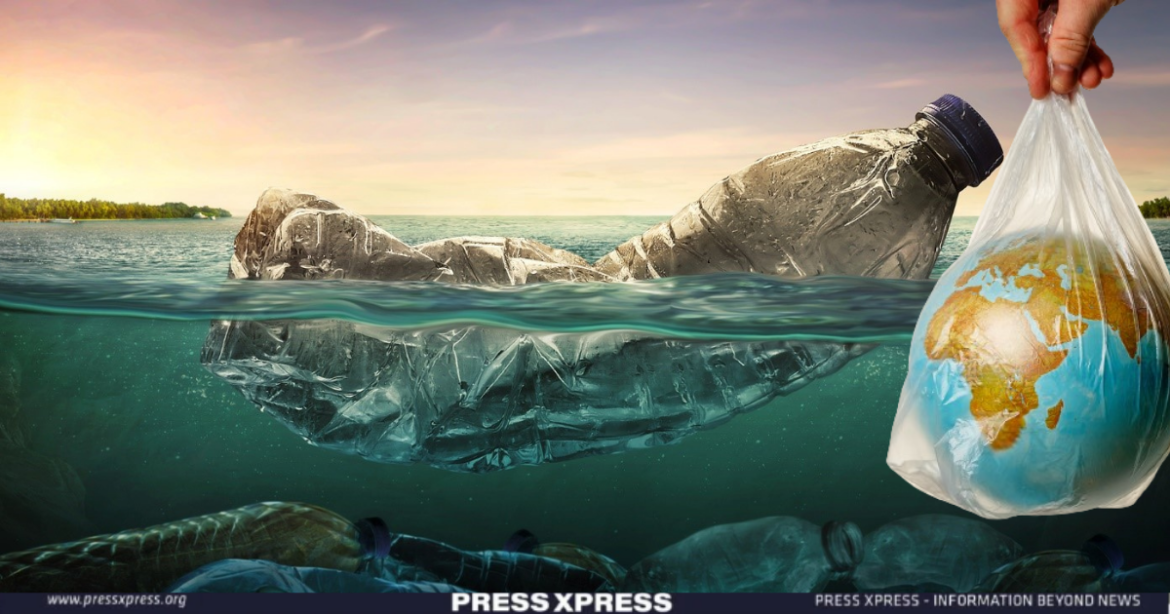Plastic’s pervasive presence in modern life, from oceans to landfills, is a result of its versatility and utility across various applications. However, the excessive use of plastic poses threats to both human populations and natural ecosystems.
A recent report by the Center for Climate Integrity uncovers a long-standing campaign of deception by Big Oil and the plastics industry regarding plastic recyclability. This fraudulent activity has significantly contributed to the plastic waste crisis. The report, titled ‘The Fraud of Plastic Recycling,’ utilizes undisclosed internal industry sources to expose this deceit.
You can also read: How Language and Culture Shapes Emotional Perception
The report’s findings could potentially lay the groundwork for legal action against fossil fuel and petrochemical companies for their dishonest practices. By amalgamating newly revealed industry documents with existing research, the report elucidates how these companies have misrepresented recycling as a solution to plastic waste management for over five decades, despite knowing that large-scale plastic recycling is neither technically nor economically feasible.

Among the New Pieces of Evidence in the Report:
Petrochemical companies, including industry giants like ExxonMobil, have been aware for decades that recycling is not a lasting solution to the plastic waste problem. As far back as the 1980s, an industry report stated that recycling merely delays the disposal of plastic items rather than providing a permanent solution.
In 1989, the founding director of the Vinyl Institute, a trade group within the industry, acknowledged to conference attendees that recycling is not a sustainable solution and does not effectively address the issue of solid waste.
Similarly, in 1992, an employee at Eastman Chemical Company conceded that relying on recycling alone would not resolve the solid waste problem.
Even as late as 1994, an Exxon employee emphasized to American Plastics Council (APC) staffers the company’s commitment to recycling projects while expressing skepticism about achieving significant results.
Notes from an APC staffer in 1995 underscored the economic challenges of recycled plastic, indicating that it cannot compete with virgin material in the market and would face steep price competition in the future.

Plastic Recycling Challenges
According to the Center for Climate Integrity’s report ‘The Fraud of Plastic Recycling,’ the widespread belief that plastic recycling offers an effective solution to managing plastic waste is based on a decades-long campaign of deceit by the fossil fuel and plastics industries. Despite facing numerous technical, economic, and logistical hurdles, this report sheds light on how these corporations have deliberately misled the public about the viability of plastic recycling.
Plastic recycling faces several inherent difficulties, including the diverse range of plastic materials, each with distinct chemical compositions and properties, which makes recycling challenging. Additionally, contamination due to food residues, dirt, and other substances reduces the quality of plastics and renders them less suitable for recycling, necessitating costly and energy-intensive cleanup processes.
Another obstacle is plastic degradation, which occurs through repeated usage, exposure to sunlight, and various environmental factors. Degradation compromises plastic quality and recyclability, rendering many items unusable for recycling purposes.
Inadequate infrastructure further hinders plastic recycling efforts. Regions lacking proper facilities and collection systems result in low recycling rates and increased dependence on landfills and incineration.
Finally, economic factors such as fluctuating prices of virgin plastic and insufficient demand for recycled plastic products hinder investments in recycling infrastructure and discourage participation in recycling programs.
Despite these well-known challenges, the CCI report indicates that major players within the plastics industry have been aware of the limitations of plastic recycling yet continued to promote it as a sustainable solution, contributing significantly to the current plastic waste crisis.

Some Solutions to Common Plastic Recycling Operation Problems
Plastic recycling plays a crucial role in mitigating the environmental impact of plastic waste, but various challenges can hinder its effectiveness. This article addresses seven common issues encountered in plastic recycling operations and offers practical solutions to overcome them.
- Material feeding instability can disrupt productivity, but automatic feeding systems synchronized with the recycling machines ensure stable material supply.
- Contamination of plastic material decreases quality and reusability; therefore, clean and sorted plastic waste is essential before recycling.
- Blockages and hopper bridging can be prevented through proper preparation of materials, maintenance, and using force feeders.
- Overheating of plastic waste leads to pellet degradation; controlling temperature and using reliable components can prevent this.
- Sticky plastic pellets can be avoided by adjusting extruder temperature and using centrifuge dryers.
- Hollow plastic pellets result from poor degassing and plasticization; vacuum degassing systems and temperature control can solve this.
- Non-uniform pellets stem from feeding instability and poor cutting systems; stabilizing feeding and using auto speed-controlled pellet cutters ensure consistent pellet output.
- Implementing these solutions, including advanced technologies like automatic cutting systems, can significantly improve the efficiency and quality of plastic recycling processes.

Plastic Recycling in Bangladesh
Bangladesh’s rapid urbanization has led to a surge in plastic consumption and pollution. Over the past 15 years, urban areas have seen a threefold increase in annual per capita plastic usage, soaring from 3kg in 2005 to 9kg in 2020. The consumption of LDPE packaging materials, like plastic bags, has skyrocketed fivefold during the same period. Despite this spike, only 31% of the 977,000 tonnes of plastic consumed in 2020 were recycled.
The bulk of unmanaged plastic waste consists of single-use items such as shopping bags, packs, and wrappers. Dhaka, with an annual per capita plastic usage of 22.25kg, surpasses the national average for metropolitan regions by over three times. The city grapples with a daily collection of around 646 tonnes of plastic waste, constituting 10% of Bangladesh’s total rubbish output. However, only 37.2% of Dhaka’s plastic waste undergoes recycling.


